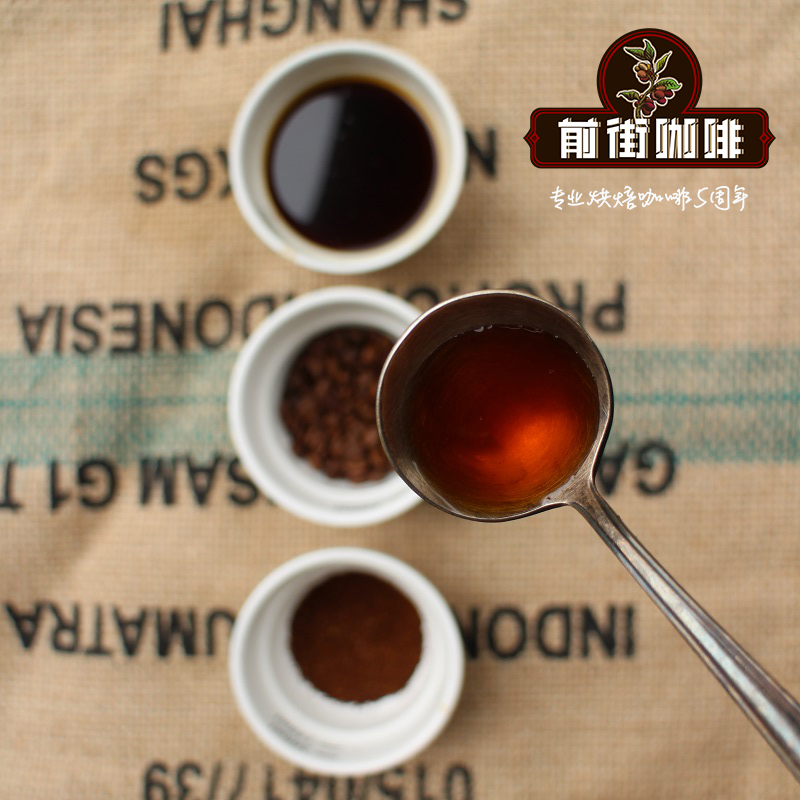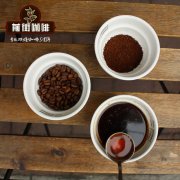Yunnan coffee exported to the United States foreign coffee scholars on Yunnan coffee have what kind of evaluation

Yunnan-the leading edge of specialty coffee
"Coffee from China. Really? " It is the usual reaction of the subject when it appears.
Tea, yes, and rice, obviously.
But coffee. Specialty coffee. Really?
Yes, exactly!
Once the Yunnan coffee we managed to master was snapped up by people who knew the beans, people's attitudes began to change rapidly. Sometimes it's a little dismissive at first, but people who try these coffees are often surprised. And then be attracted. And then transformed, because specialty coffee from China (or rather Yunnan) has begun to compete with traditionally grown coffee. America and Africa. And they're getting better every year.
Visionary farmers and producers are taking advantage of better and more thoughtful processing technologies to take full advantage of already mature varieties. At the same time, they (and we) are patiently waiting for the newly planted Typica,Bourbon (red and yellow), Pacamara and even Geisha that they have planted and nurtured over the past few years.
Over the next few years, we expect a major shift in attitudes from the global coffee community to this beautiful and fertile Southeast Asian region.
Historical geography
In the eyes of many in the West, China is associated with huge manufacturing output, large electricity exports and huge cities. However, our coffee comes from these visionaries. Imagine a mountainous and fertile land inhabited by hilly tribes bordering Laos, Myanmar (Myanmar), Vietnam and Xizang, less than 80 miles from southern and northern India. This is the Yunnan region-a truly amazing unique part of the world. The people of Yunnan are a confusing and endless mixture of cultures and languages, and most of China's officially recognized 56 different races live here. The population of the area is not only diversified, it also has many animals and plants (including elephants and tigers).
Most of the coffee we offer from Yunnan is Menglian-or named after it: "Menglian Dai, La hu and Uygur Autonomous County". Meng Lian, who has long been famous for locally grown rice and tea, was also quickly recognized for his excellent coffee. We also found high-quality coffee from other areas such as Baoshan and Jiangcheng. We fully hope to find more coffee from new farms in other areas in the next few years.
Yunnan coffee
Like other parts of Southeast Asia, coffee was first introduced to Yunnan by missionaries at the end of the 19th century. Commercial-grade coffee has been grown here on a large scale since the 1990s, but until a few years ago, little attention was paid to specialty coffee. Farmers tend to focus more on the plants most relevant to Yunnan (some tea trees here are rumored to be more than a thousand years old), and cash crops such as sugar cane will also be concentrated as long as prices are favorable.
In the late 1990s, the government took a series of measures and the number of coffee farmers soared, and only when the devastating frost hit in 1999 / 2000 did many of them give up and return to traditional crops. Some farmers, including the outstanding Hu Xixiang, persevered. We are honored to be able to showcase and provide the fruits of the labor of Yunnan coffee merchants and their companions from more and more farmers to bakers in the UK and Europe.
Among the main tribes of the Hani and Wa mountains, farmers have a deep sense of respect for the land and know how to get the most out of Menglian's fertile soil and near-perfect coffee growing conditions. Some areas of the farms we work with will receive international organic certification and planting trees over the next few years (per 10 trees / 330m2), which is a prerequisite for those who want to join this partnership operative.The to keep pesticide levels to a minimum-all farms we work with receive 4C certification-which means that, in rare cases where pesticide use is necessary, it must be selected from a strictly approved list.
Based on our experience throughout Southeast Asia, we have experienced a lot of changes in the commitment and quality control consistency required for professional-grade coffee. However, although we are a relatively new farm in the international specialty market, we are shocked by the attention to detail in the sorting process, which ensures that only the most mature cherries enter the final export to our products. We can rest assured that the coffee on these farms will maintain its quality and will continue to improve for many years to come.
They're already great! It is always easy to be swept away by the new exoticism and strangeness, so when the cup comes home in gray and drizzling London, the evidence in the cup often cannot be translated. However, with the hard work of farmers in this fertile land and the attention of Yunnan coffee traders to detail, it is always a great way to taste coffee no matter where you drink coffee in the world.
In the past two years, these coffees have caused quite a stir in Australia and the United States.
Important Notice :
前街咖啡 FrontStreet Coffee has moved to new addredd:
FrontStreet Coffee Address: 315,Donghua East Road,GuangZhou
Tel:020 38364473
- Prev

The United States assists Myanmar in establishing a boutique coffee growing system. Burmese coffee enters the US market.
Among all the coffee producing countries in Southeast Asia, it is undeniable that the frenzy about coffee in Myanmar (Myanmar) is already very obvious. Surprisingly, the first export to the American specialty coffee market began in 2016. This is an ancient and truly fascinating country, and its recent history is puzzling. The Burmese government and military are accepting information about the Rohingya in Rakhine State in western Myanmar.
- Next

Is there a good variety of Bolivian coffee? how's the cocoa from the sun in Waliki Manor? how's Java?
Bolivian Valiki Manor Coco tanning Java Bolivia Waliki Coco Natural Java Coffee area: la Paz La Paz planting altitude: 1600 meters Coffee varieties: Java Java treatment: cocoa tanning Coco natural coffee producing area this Bolivian cocoa tanning Java comes from a small estate called Waliki. The name is inspired by
Related
- Detailed explanation of Jadeite planting Land in Panamanian Jadeite Manor introduction to the grading system of Jadeite competitive bidding, Red bid, Green bid and Rose Summer
- Story of Coffee planting in Brenka region of Costa Rica Stonehenge Manor anaerobic heavy honey treatment of flavor mouth
- What's on the barrel of Blue Mountain Coffee beans?
- Can American coffee also pull flowers? How to use hot American style to pull out a good-looking pattern?
- Can you make a cold extract with coffee beans? What is the right proportion for cold-extracted coffee formula?
- Indonesian PWN Gold Mandrine Coffee Origin Features Flavor How to Chong? Mandolin coffee is American.
- A brief introduction to the flavor characteristics of Brazilian yellow bourbon coffee beans
- What is the effect of different water quality on the flavor of cold-extracted coffee? What kind of water is best for brewing coffee?
- Why do you think of Rose Summer whenever you mention Panamanian coffee?
- Introduction to the characteristics of authentic blue mountain coffee bean producing areas? What is the CIB Coffee Authority in Jamaica?

